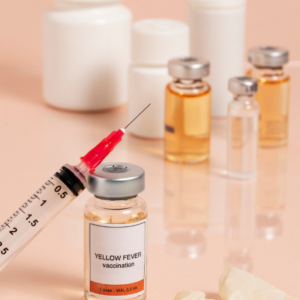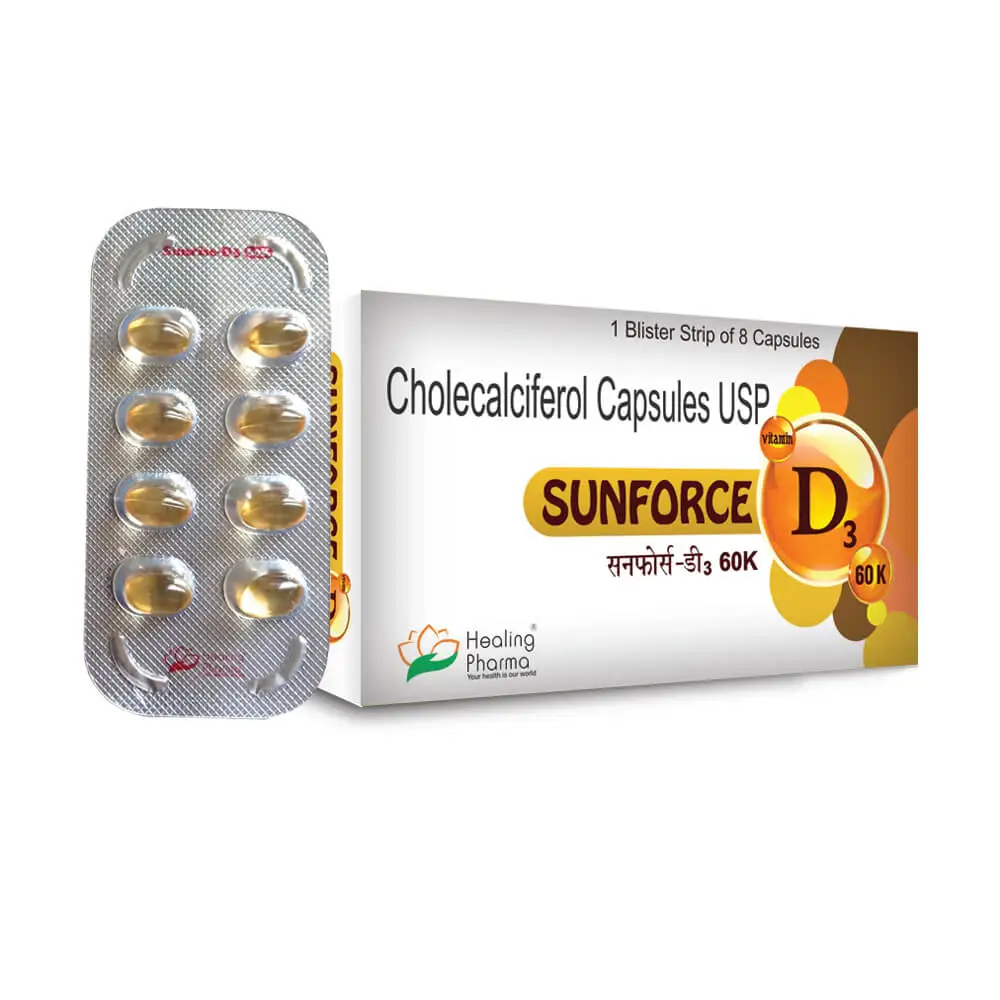SUNFORCE D3 60K
| Package | Per capsule | Savings | Price |
|---|---|---|---|
| 48 capsules | $0.67 | $10 | $42 $32 |
| 40 capsules | $0.70 | $7 | $35 $28 |
| 32 capsules | $0.72 | $5 | $28 $23 |
| 24 capsules | $0.75 | $3 | $21 $18 |
| 16 capsules | $0.81 | $1 | $14 $13 |
| 8 capsules | $0.88 | – | $7 |
What is this medicine?
SUNFORCE D3 60K contains Cholecalciferol (Vitamin D3) in a high dose of 60,000 IU. This medicine is used to treat and prevent vitamin D deficiency. It helps the body absorb calcium and phosphorus, which are essential for maintaining strong bones and teeth. It is commonly used in conditions such as osteoporosis, rickets, osteomalacia, and in individuals with poor dietary intake or low sun exposure.
What should I tell my health care provider before I take this medicine?
They need to know if you have any of these conditions:
-
High calcium levels in the blood (hypercalcemia)
-
High vitamin D levels (hypervitaminosis D)
-
Kidney disease or kidney stones
-
Liver disease
-
Heart disease
-
Sarcoidosis or other granulomatous diseases
-
If you are on a calcium- or phosphate-restricted diet
-
An unusual or allergic reaction to vitamin D3, other vitamins, foods, dyes, or preservatives
-
Pregnant or trying to get pregnant
-
Breast-feeding
How should I use this medicine?
Take this medicine by mouth with a glass of water. It is usually taken once a week, or as directed by your doctor. It may be taken with food to improve absorption.
Do not take more than the prescribed dose.
Overdosage: If you think you have taken too much of this medicine, contact a poison control center or emergency room at once.
What if I miss a dose?
If you miss a dose, take it as soon as you can. If it is almost time for your next dose, take only that dose. Do not take double or extra doses.
What may interact with this medicine?
-
Calcium supplements or antacids
-
Magnesium-containing medications
-
Thiazide diuretics
-
Digoxin or digitalis
-
Steroids such as prednisone
-
Cholestyramine or colestipol
-
Orlistat (used for weight loss)
-
Anticonvulsants (e.g., phenytoin, phenobarbital)
This list may not include all interactions. Give your health care provider a list of all medicines, herbs, non-prescription drugs, or dietary supplements you use. Also tell them if you smoke, drink alcohol, or use recreational drugs.
What should I watch for while using this medicine?
-
Your doctor may monitor your vitamin D and calcium levels with blood tests.
-
Avoid taking extra calcium or vitamin D supplements unless told to do so.
-
Drink plenty of fluids to reduce the risk of kidney stones.
-
Contact your doctor if you have symptoms of high calcium such as nausea, vomiting, constipation, confusion, or frequent urination.
-
Pregnant or breastfeeding women should use this medication only if recommended by their healthcare provider.
What side effects may I notice from this medicine?
Side effects that you should report to your doctor or health care professional as soon as possible:
-
Allergic reactions like rash, itching, swelling of the face, lips, or tongue
-
Severe weakness or tiredness
-
Irregular heartbeat
-
Persistent vomiting or severe constipation
-
Kidney stone symptoms (sharp pain in the back or side, blood in urine)
Side effects that usually do not require medical attention (report if bothersome or persistent):
-
Nausea
-
Headache
-
Metallic taste in mouth
-
Dry mouth
-
Drowsiness or fatigue
This list may not describe all possible side effects.
Where should I keep my medicine?
-
Keep out of the reach of children.
-
Store at room temperature, between 20 and 25°C (68 and 77°F).
-
Protect from light and moisture.
-
Do not freeze.
-
Dispose of any unused medicine after the expiration date.
























